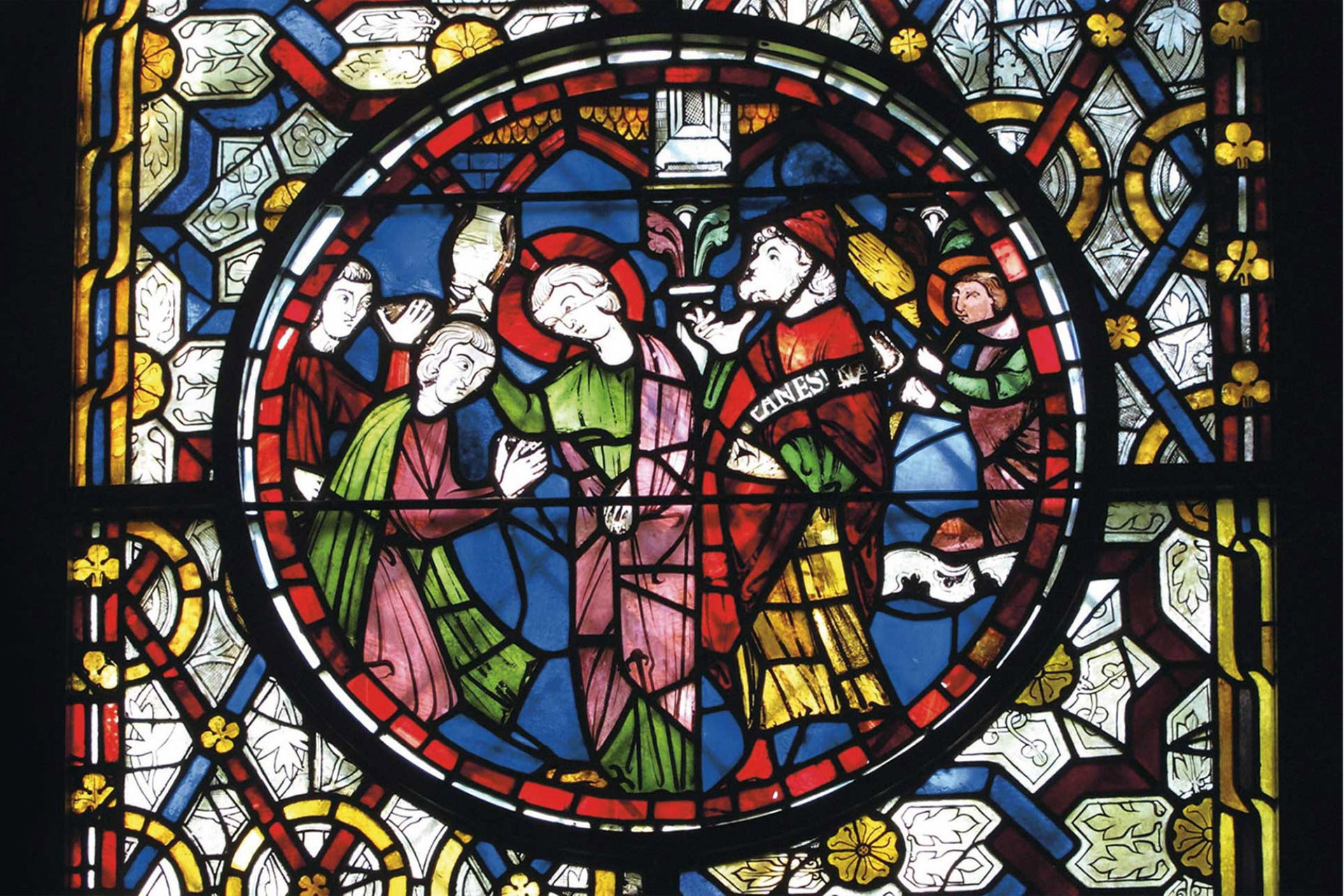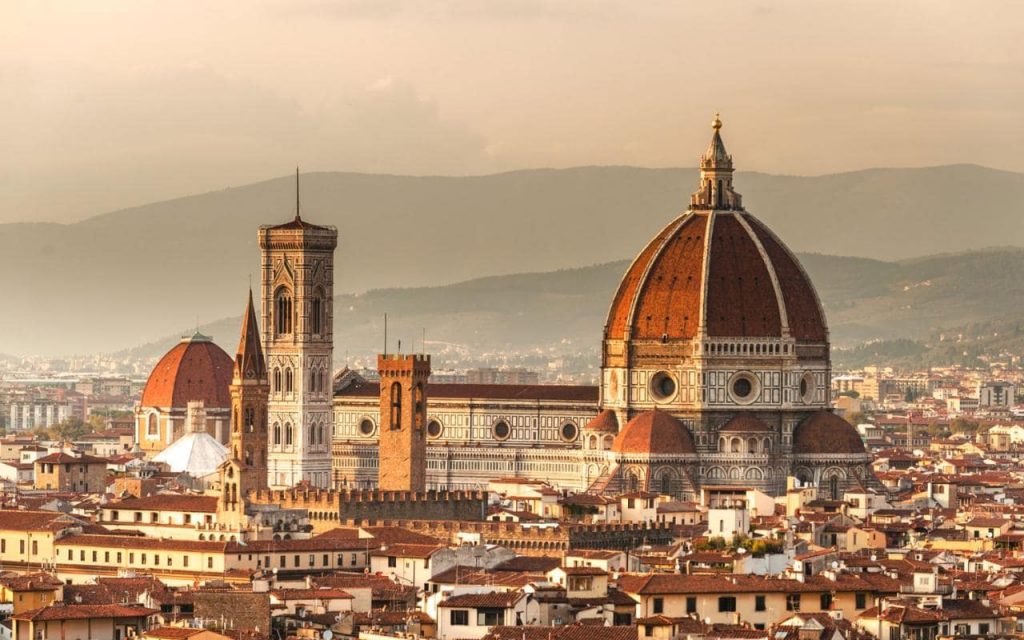In February of this year’s Spring term, a group of twelve MA Medieval and Early Modern students took part in a five-day study trip to Italy to explore the history of libraries and of post-classical Latin epigraphy in Florence and Rome.
The trip was organised and led by Dr David Rundle, Lecturer in Renaissance History at the University of Kent, and made possible by the generous support of the University’s Internationalisation Fund.
Designed to enhance the learning that students had already gained in the MEMS core modules of palaeography and ab initio Latin, some highlights of the trip included a private view of the Bliblioteca Riccardiana, facilitated by Prof. Stefano Baldassarri (International Studies Institute, Florence) and a tour of the Basilica of San Clemente by Prof. Paul Gwynne (American University of Rome).
The full itinerary of the trip was as follows:-
Day 1: Arrival in Florence – introductory walking tour
Day 2: Morning: Visit to San Marco, with particular attention to its prototypical library space (but also time to see the Fra Angelico frescoes); Afternoon: Visit to the Uffizi, with special interest shown in the depiction of script in paintings
Day 3: Morning: Private view at the Biblioteca Riccardiana, facilitated by Prof. Stefano Baldassarri (International Studies Institute, Florence), with a seminar, led by Dr David Rundle, discussing five fifteenth-century manuscripts; visit to the Biblioteca Laurenziana, designed by Michelangelo; Afternoon: Visit to Santa Croce, with the tomb of the leading humanist Leonardo Bruni, and the Pazzi Chapel
Morning: The Capitoline Museums, with discussion of the Latin inscriptions
Afternoon: tour of the Basilica di San Clemente, guided by Prof. Paul Gywnne
Day 5: Free time so students could explore before getting the flight home
Students were wholeheartedly enthusiastic about the trip, describing it as a ‘once-in-a-lifetime experience’ (as their @mems_ukc Twitter takeover in Florence and Rome can testify to!) and on their return, they wished to share the following reflections:
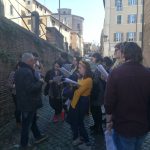 ‘I thoroughly enjoyed the MEMs field trip to Florence and Rome guided by Dr David Rundle with special excursions led by Professors Stefano Baldassarri and Paul Gywnne…The trip enhanced my learning as I was able to immerse myself in the art and architecture of the Renaissance and visualise what the humanists were really looking at in terms of Roman architecture and wanting a return to the classical era’ – Eleanor Barrell
‘I thoroughly enjoyed the MEMs field trip to Florence and Rome guided by Dr David Rundle with special excursions led by Professors Stefano Baldassarri and Paul Gywnne…The trip enhanced my learning as I was able to immerse myself in the art and architecture of the Renaissance and visualise what the humanists were really looking at in terms of Roman architecture and wanting a return to the classical era’ – Eleanor Barrell
 ‘The MEMS trip to Florence proved as interesting as it was eye-opening… The trip allowed for numerous opportunities to apply the skills learnt in seminars to important pieces of history and art across museums in Florence and Rome, and such endeavours really put the usefulness of a MEMS skill set into perspective… The freedom that we had as students to explore churches, museums, and galleries on our own was much appreciated, but so too did I take solace in the fact that any questions that I had could easily be asked and answered. I feel that I got a lot out of the trip; I saw a country that I have never been to before through the framework of MEMS, seeing pieces that I wouldn’t have thought to have gone to see and learnt things that I surely wouldn’t have learnt had I gone on my own’ – Kim Walsh
‘The MEMS trip to Florence proved as interesting as it was eye-opening… The trip allowed for numerous opportunities to apply the skills learnt in seminars to important pieces of history and art across museums in Florence and Rome, and such endeavours really put the usefulness of a MEMS skill set into perspective… The freedom that we had as students to explore churches, museums, and galleries on our own was much appreciated, but so too did I take solace in the fact that any questions that I had could easily be asked and answered. I feel that I got a lot out of the trip; I saw a country that I have never been to before through the framework of MEMS, seeing pieces that I wouldn’t have thought to have gone to see and learnt things that I surely wouldn’t have learnt had I gone on my own’ – Kim Walsh
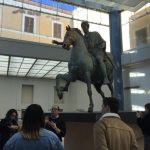 ‘I would like to thank the Internationalisation Fund and MEMS for funding the trip to Florence, it was an incredibly valuable learning experience and I really appreciate the opportunity. It was a fantastic experience to see the Latin inscriptions we studied at the start of this year in situ, really contextualising them and bringing the course full circle. The trip also really enhanced my palaeographical skills as I was able to study up close inscriptions in roman capitals at the Capitoline Museums and thus gain a fuller understanding of the script. My understanding of these was further enhance by our tour of San Clemente and the discussions surrounding the use of spolia, particularly those containing roman inscriptions’ – Ellen Meade
‘I would like to thank the Internationalisation Fund and MEMS for funding the trip to Florence, it was an incredibly valuable learning experience and I really appreciate the opportunity. It was a fantastic experience to see the Latin inscriptions we studied at the start of this year in situ, really contextualising them and bringing the course full circle. The trip also really enhanced my palaeographical skills as I was able to study up close inscriptions in roman capitals at the Capitoline Museums and thus gain a fuller understanding of the script. My understanding of these was further enhance by our tour of San Clemente and the discussions surrounding the use of spolia, particularly those containing roman inscriptions’ – Ellen Meade
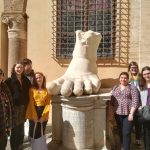 ‘The MEMS and Humanities funded trip was absolutely fantastic. I would never have dreamt that I would have been able to go to this wonderful city, but thanks to your generosity I have been enlightened and my dream fulfilled. David’s organisation was top notch with an excellent agenda, his knowledge is second to none on the various libraries and churches we entered’ – Peter Stiffell
‘The MEMS and Humanities funded trip was absolutely fantastic. I would never have dreamt that I would have been able to go to this wonderful city, but thanks to your generosity I have been enlightened and my dream fulfilled. David’s organisation was top notch with an excellent agenda, his knowledge is second to none on the various libraries and churches we entered’ – Peter Stiffell
